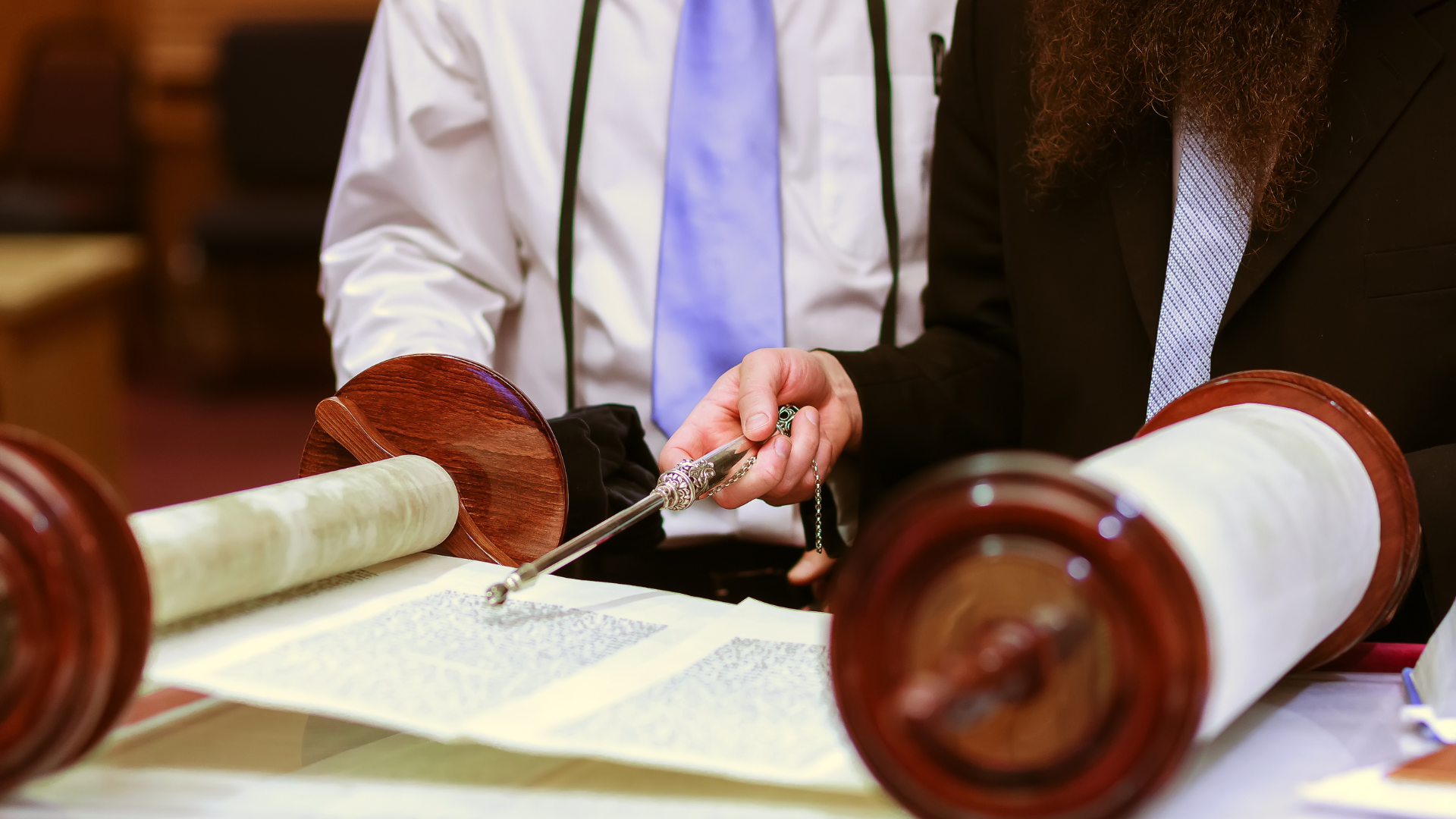
Exodus 18 contains the powerful story of Yitro (Hebrew for the name “Jethro”) and Moses coming together, sharing from personal experience, celebrating each other, offering meaningful outside perspective, and being comfortable with separateness. So, I would like to share my reflections on the ICJS Congregational Leaders Fellowship based on this powerful model of interfaith communication. The text of the Torah is in quotes.
“Yitro, priest of Midian, Moses’ father-in-law… Moses went out to meet his father-in-law; he bowed low and kissed him; each asked after the other’s welfare, and they went into the tent.”
Not everyone knows that Moses was married to Tzipora, the daughter of a Midianite Priest. The synagogue I lead, Kol HaLev, has many interfaith families, particularly in our b’mitzvah program—mostly from unions between Jewish and Christian parents.
“Moses then recounted to his father-in-law everything that יהוה (G-d) had done to Pharaoh and to the Egyptians for Israel’s sake… And Yitro rejoiced over all the kindness that יהוה (G-d) had shown Israel when delivering them from the Egyptians.”
Imagine if we could really rejoice at the gifts each religion offers? Imagine if, as we share, we could be be legitimately happy for each other? My dream that arose from this fellowship is to create a program for our teenagers from multi-faith families to be able to take a coming of age class that teaches about both the Jewish and Christian aspects of their identities. I imagine, in my biggest and most radical dream, we would be able to culminate in the two coming of age rituals, should the student want them: a b’mitzvah in the Jewish religion, and something resembling a Christian confirmation ceremony as well.
I know this may not be possible. We live in a world of choices. When a young adult is confirmed, they might be implicitly making the statement they are choosing that religion as their sole path. But imagine, for a moment, if b’mitzvah and confirmation really just meant: I am an adult. This means, I promise to embrace my full self. I promise to nurture what I am, to grow and own as many parts of myself that I can, to study my faith tradition on a higher level that doesn’t just look for similarities, but can hold complexity. A b’mitzvah is a person who brings their gifts and talents to the tribe, and what else do we need but full people for that?
“And Yitro, Moses’ father-in-law, brought a burnt offering and sacrifices for God; and Aaron came with all the elders of Israel to partake of the meal before God with Moses’ father-in-law.”
When Yitro makes an offering to God, it is unclear whether the sacrificial offering is aligned with his particular faith practice, or those of the Israelites. But what we do know is that the holy Hebrew priests partake in eating the meal that comes from Yitro’s offering.
As we come of age as a society, I bless us to be honest and transparent about comfort levels for consent when engaging. Like Yitro and Aaron, the Midianite and Hebrew Priests respectively, let us attend the dinner party of life together. Let us feast on the complexity of our individual and communal identities.
“But when Moses’ father-in-law saw how much he (Moses) had to do for the people, he said, ‘What is this thing that you are doing to the people? Why do you act alone… the task is too heavy for you; you cannot do it alone.’”
Yitro gives Moses the sound advice that he cannot go on ruling the tribes of Israel all alone. The advice that Moses’ Midianite father-in-law gives him is what we can give each other. As we sit divided in our own congregations, organizations, and sects, “the Whole” is a relatively untapped resource in the healing of the world.
“Then Moses bade his father-in-law farewell, and he went his way to his own land.”
Distinctions and boundaries are containers that embody matter. Being accepted by the members of this Fellowship as a Jew makes me a better Jew. It makes me feel proud. It makes me feel generous to share and come together to do good in the world.
 Rabbi Emily Stern is the spiritual leader of Kol Halev, a Reconstructionist synagogue in Lutherville, MD, and was a member of the 2023 ICJS Congregational Leaders Fellowship. Learn more about the ICJS Congregational Leaders programs here.
Rabbi Emily Stern is the spiritual leader of Kol Halev, a Reconstructionist synagogue in Lutherville, MD, and was a member of the 2023 ICJS Congregational Leaders Fellowship. Learn more about the ICJS Congregational Leaders programs here.
Opinions expressed in blog posts by the ICJS Congregational Leader Fellows are solely the author’s. ICJS welcomes a diversity of opinions and perspectives.